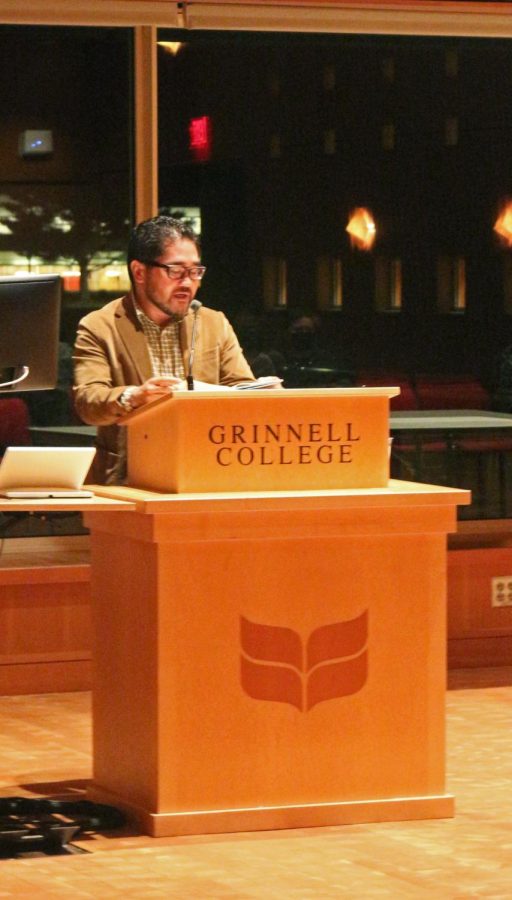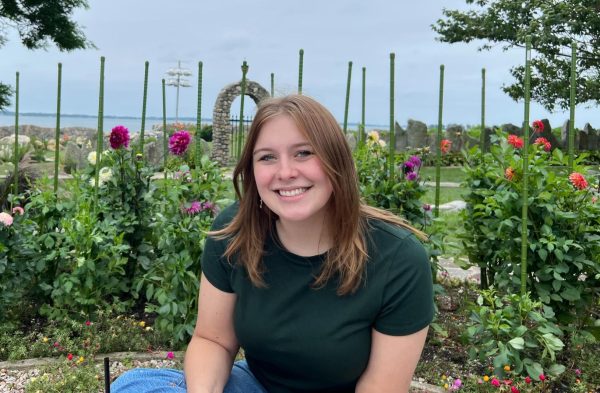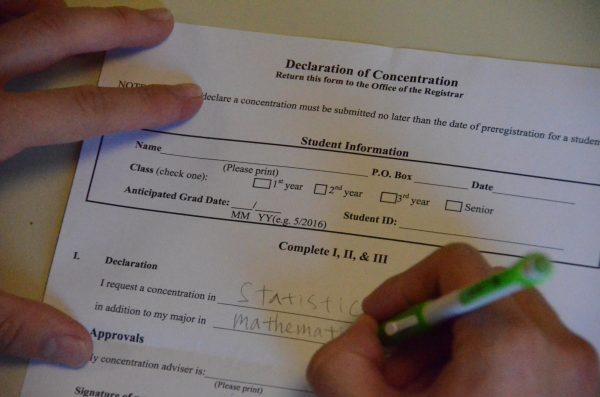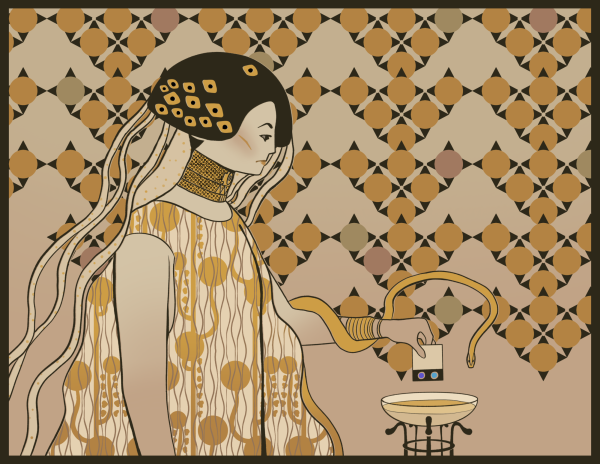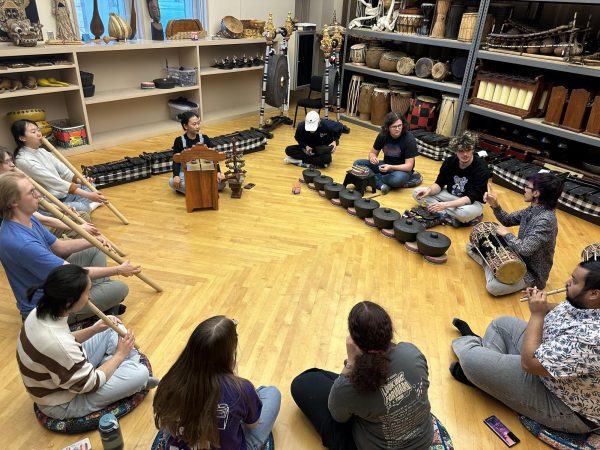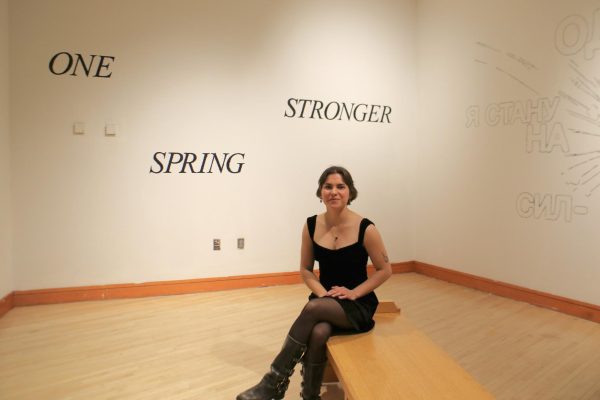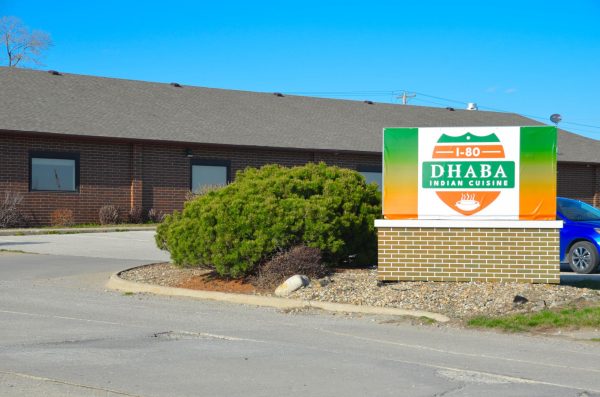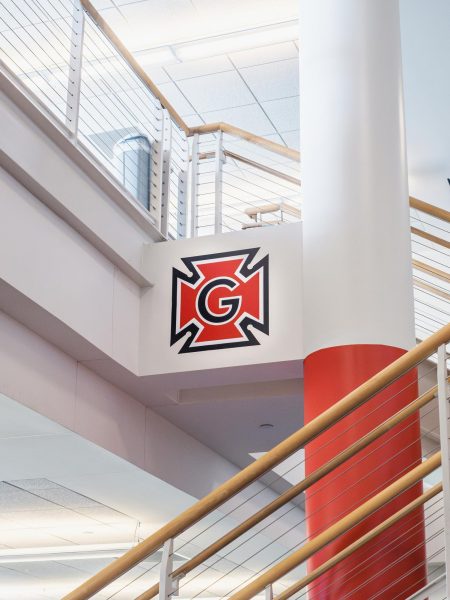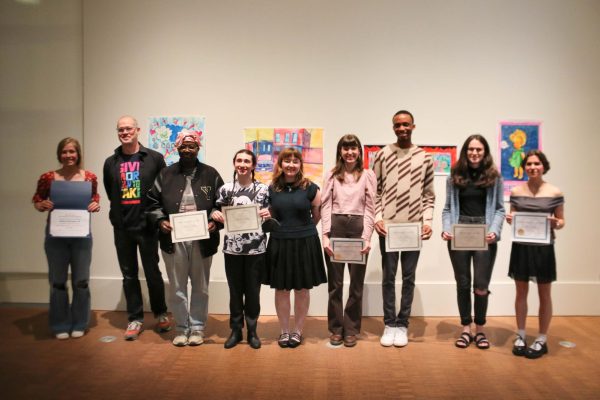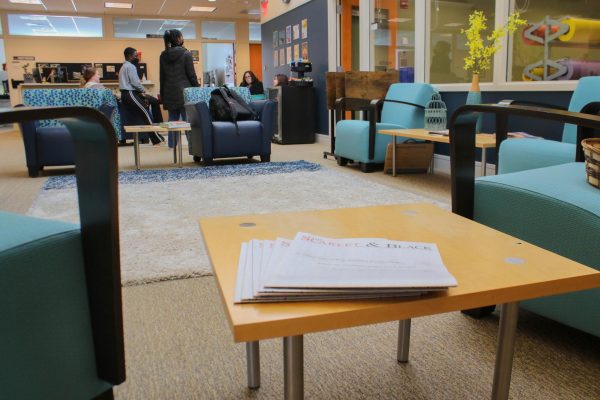Writers@Grinnell: Sequoia Nagamatsu `04
Nagamatsu read excerpts from his novel “How High We Go in the Dark.”
October 28, 2022
Sequoia Nagamatsu has a robot dog. Mostly for research purposes, he explained. “I definitely felt like when the dog was roaming around, it wasn’t just a toy.”
This year, Nagamatsu `04 published his debut novel, “How High We Go in the Dark,” which grapples with themes of grief, familial connection and disconnection, Japanese folklore, and, in one chapter, Sony Aibo robot dogs.
Intrigued by the history of the Aibo dogs, which in some instances have been used as therapy “animals” in elderly care homes, Nagamatsu wanted to see for himself if these robots really could function like real pets.
“I found myself speaking in this high-pitched voice like you would with real pets or babies,” he said. “I actually regarded the robot as a living being.”
In “How High We Go in the Dark,” Nagamatsu’s words dance from page to page, undulating seamlessly between darker themes of loss and familial distance and idiosyncratic stories about Chinese senior citizens bereft after Sony temporarily discontinued the Aibo dogs.
On Tuesday, Oct. 11, Nagamatsu participated in the Writers@ Grinnell series, leading a roundtable discussion and sharing snippets from his novel. At the evening reading, Nagamatsu, modest and composed, delivered vulnerable passages in a rhythmic voice. His writing borders on surreal, oscillating between verses about the interconnectedness of the universe and genetically modified pigs. Underlying these seemingly disparate topics is a common thread of the hope and resilience of human connection.
As a student at Grinnell College, Nagamatsu described himself as “somewhat of a wayward anthropology major,” mainly interested in classics, archaeology and evolutionary genetics. It was in this academic field that Nagamatsu began to develop the themes that later manifested in his fiction writing.
After graduating and moving to San Francisco, Nagamatsu said he began “diving into research and collating research and thinking about how I would be presenting particular characters and situations in a way that was responsible.”
“Had I been gifted with math skills, I likely would have had another career, but such is not the case. I’ve always been interested in space exploration. I was a huge Star Trek nerd growing up. I still am,” said Nagamatsu.
However, the gift of a liberal arts education to Nagamatsu was the permission and encouragement to explore all of his eccentricities.
Grateful also for Grinnell’s lack of general education requirements, Nagamatsu said he “allowed [himself] to bounce around. Maybe a little bit too much.” Particularly “seduced by ideas and concepts” from his classes in anthropology and art, Nagamatsu asserted that “I would not be where I am today had it not been for Grinnell.”
As a student, Nagamatsu also immersed himself in environmental activism. He became particularly excited and nostalgic when reminiscing about his time in a student organization called Free the Planet and as a co-manager of the forest campaign for the Conard Environmental Research Area student club. These endeavors gave Nagamatsu formative experience in writing press releases, organizing large-scale events and pondering questions about environmental justice.
“Even if I wasn’t making a difference in a small, immediate way, I felt like I was part of the conversation,” said Nagamatsu.
Although the seeds of his first novel were sown early in his career, Nagamatsu said that it took years to flesh out. Since beginning the writing process for what is now a national bestselling novel, Nagamatsu said he has “learned to listen to myself and be really honest with myself … Sometimes time is the best editor.”
Now an associate professor of English at St. Olaf College in Northfield, Minnesota, Nagamatsu teaches creative writing, often focusing on environmental conversations. His wife, author Cole Nagamatsu, also teaches at St. Olaf and co-parents their robot dog, Calvino. Nagamatsu said that he and his wife are now working on a novel together, tentatively slated for publication in 2024. Nagamatsu is also the author of a collection of short stories titled “Where We Go When All We Were Is Gone.”
The next Writers@Grinnell event will welcome writer and comedian Amy Silverberg on Tuesday, Nov. 1. Her reading will be held at 8 p.m. in the Joe Rosenfield Center room 101.




























































